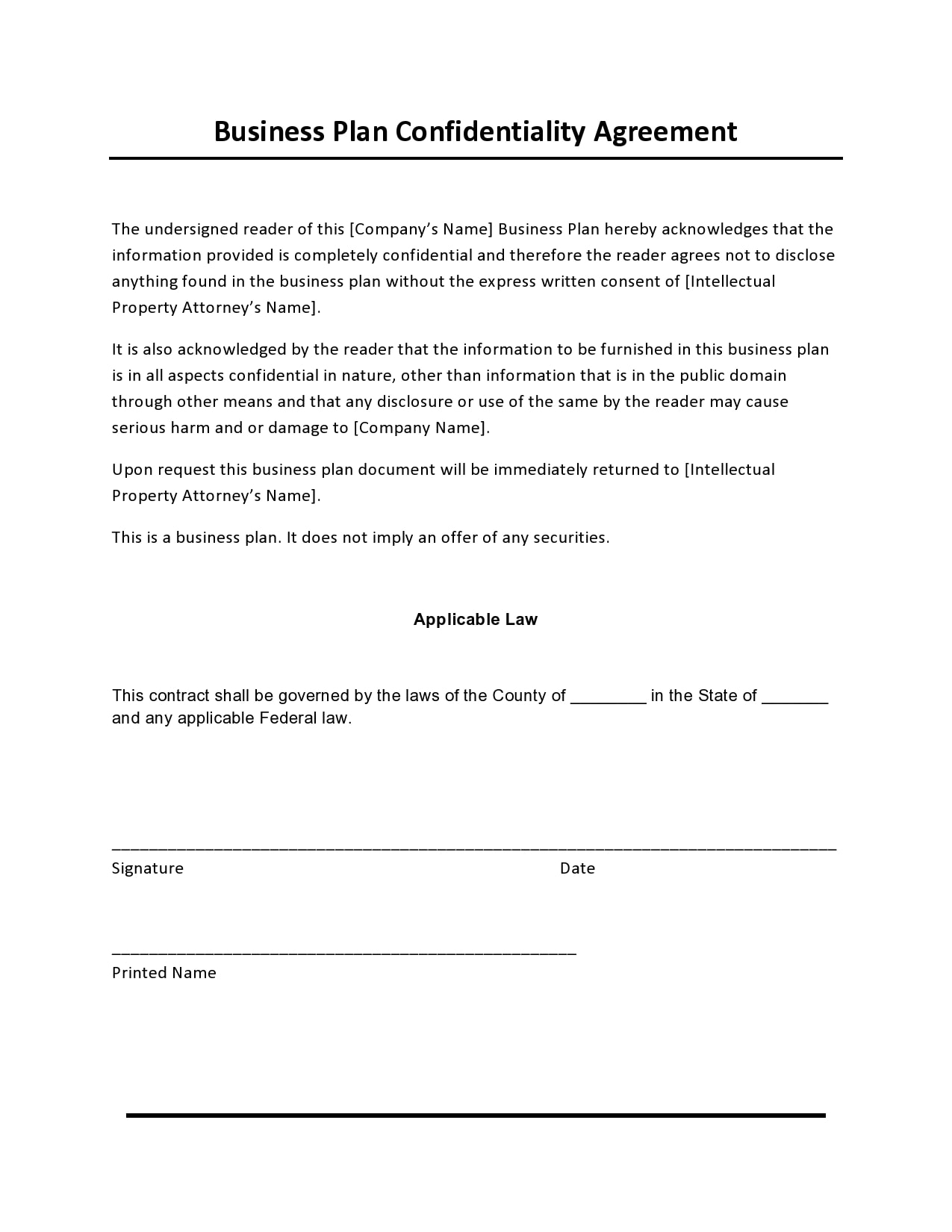Okay, okay, okay. You know what I’m here to talk about today? Confidentiality agreements. Yup, you heard that right. Confidentiality agreements are like the Kardashians of the legal world - they’re famous, they’re always around, and everybody seems to have an opinion about them (whether they actually know what they’re talking about or not is another story).
Image 1: 45 Free Confidentiality Agreement Templates
 So what exactly is a confidentiality agreement? It’s a legal document that’s used to protect sensitive information from being shared. Let’s say you’ve got a great idea for a new product, and you’re sharing that idea with potential investors or business partners. A confidentiality agreement would make sure that they can’t just go and blab about your brilliant idea to everyone else.
So what exactly is a confidentiality agreement? It’s a legal document that’s used to protect sensitive information from being shared. Let’s say you’ve got a great idea for a new product, and you’re sharing that idea with potential investors or business partners. A confidentiality agreement would make sure that they can’t just go and blab about your brilliant idea to everyone else.
Image 2: When Do You Need a Confidentiality Agreement?
 But here’s the thing: not every conversation requires a confidentiality agreement. You don’t want to be that person who pulls out a legal document every time you talk to your significant other about what’s for dinner. So when do you actually need one? It really depends on the situation. If you’re discussing sensitive financial information, trade secrets, or intellectual property, you should definitely consider a confidentiality agreement.
But here’s the thing: not every conversation requires a confidentiality agreement. You don’t want to be that person who pulls out a legal document every time you talk to your significant other about what’s for dinner. So when do you actually need one? It really depends on the situation. If you’re discussing sensitive financial information, trade secrets, or intellectual property, you should definitely consider a confidentiality agreement.
Image 3: Tips for Writing a Confidentiality Agreement
 If you’ve decided that you do need a confidentiality agreement, the next step is writing one. Here are some tips to keep in mind:
If you’ve decided that you do need a confidentiality agreement, the next step is writing one. Here are some tips to keep in mind:
- Be specific: Spell out exactly what information is confidential and what isn’t.
- Define the parties: Make sure it’s clear who is bound by the agreement.
- Include remedies: Specify what will happen if the agreement is breached.
- Be reasonable: Make sure the terms of the agreement are fair and enforceable.
Image 4: The Pros and Cons of Confidentiality Agreements
 So what are the pros and cons of using a confidentiality agreement? Let’s break it down:
So what are the pros and cons of using a confidentiality agreement? Let’s break it down:
- Pros: Can protect your sensitive information, can increase trust between parties, can discourage unethical behavior
- Cons: Can be seen as a sign of distrust, can be difficult to enforce, can limit communication and collaboration
Image 5: Common Mistakes to Avoid
 Before we wrap this up, let’s take a quick look at some common mistakes to avoid:
Before we wrap this up, let’s take a quick look at some common mistakes to avoid:
- Not including all parties affected by the agreement
- Being too vague or broad with the confidentiality provisions
- Not specifying the length of the agreement
- Using confusing or ambiguous language
- Not getting the agreement in writing
So there you have it, folks. Everything you ever wanted (or didn’t want) to know about confidentiality agreements. The important thing to remember is that they’re a tool, just like any other legal document. Use them when necessary, but don’t go overboard. Nobody wants to be the person who makes their grandma sign an NDA before Thanksgiving dinner.